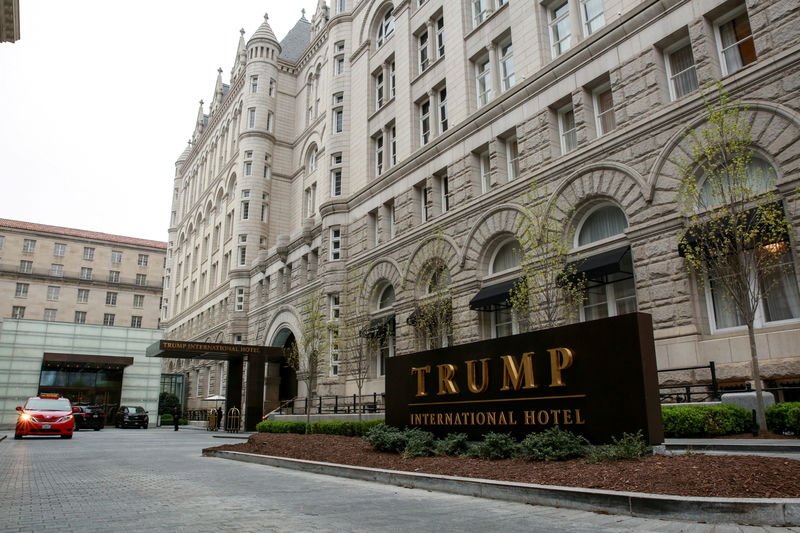By Jan Wolfe
WASHINGTON (Reuters) - The top lawyers for Maryland and the District of Columbia on Monday urged an appeals court to reconsider its dismissal of their lawsuit accusing President Donald Trump of violating anti-corruption provisions of the U.S. Constitution with his Washington hotel.
In a joint filing, Maryland Attorney General Brian Frosh and District of Columbia Attorney General Karl Racine asked all of the judges sitting on the Richmond, Virginia-based 4th U.S. Circuit Court of Appeals to rehear arguments.
Three of the court's judges said in a July 10 decision that Frosh and Racine lacked legal standing to bring the lawsuit, which alleged that Trump's continued ownership of the hotel is making him vulnerable to inducements, or "emoluments," by foreign governments seeking to curry favor.
Frosh and Racine, both Democrats and frequent Trump critics, argued that they can properly bring the case because the jurisdictions they represent are being economically injured by Trump's conduct.
According to their filing, Washington and Maryland are home to event spaces and hotels that must compete with Trump's hotel, which has become a favored lodging and event space for some foreign and state officials visiting the U.S. capital.
"It is not only plausible but near certain that some officials are inclined to patronize the Hotel to enrich the president and, necessarily, less inclined to patronize competitors," the filing stated.
The case, which dates back to 2017, was one of three alleging Trump's refusal to disentangle himself from his business empire violates the Constitution's so-called Emoluments Clauses, which bans the president from accepting gifts or payments from foreign governments without congressional consent.
Maryland-based U.S. District Judge Peter Messitte, who was appointed by former President Bill Clinton, last year allowed the lawsuit to proceed, a ruling that Trump appealed to the 4th Circuit.
All three of the judges who heard the appeal were appointed by Republican presidents.
Their decision halted dozens of subpoenas issued to Trump’s businesses and government agencies for financial documents related to the hotel.
Trump, a real estate developer who as president regularly visits his own hotels, resorts and golf clubs, maintains ownership of his businesses but has ceded day-to-day control to his sons. Critics have said that is not a sufficient safeguard.

Trump has argued that Democratic lawmakers are reading the Emoluments Clauses too broadly and that the nation’s founders were prohibiting outright bribes.